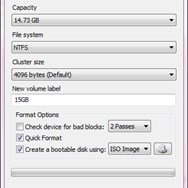MultiSystem vs Rufus
Compare features, pricing, and capabilities to find which solution is best for your needs.

MultiSystem
MultiSystem is a powerful and free utility for Linux that simplifies the creation of multi-boot USB drives. It allows users to combine multiple live Linux distributions, utility tools, and even Windows installers onto a single USB flash drive.

Rufus
Rufus is a free, open-source utility designed to format and create bootable USB flash drives from various bootable ISOs including operating systems like Windows and Linux. It is known for its speed, ease of use, and comprehensive support for different bootable formats and partition schemes. by Akeo Consulting
Comparison Summary
MultiSystem and Rufus are both powerful solutions in their space. MultiSystem offers multisystem is a powerful and free utility for linux that simplifies the creation of multi-boot usb drives. it allows users to combine multiple live linux distributions, utility tools, and even windows installers onto a single usb flash drive., while Rufus provides rufus is a free, open-source utility designed to format and create bootable usb flash drives from various bootable isos including operating systems like windows and linux. it is known for its speed, ease of use, and comprehensive support for different bootable formats and partition schemes.. Compare their features and pricing to find the best match for your needs.
Pros & Cons Comparison

MultiSystem
Analysis & Comparison
Advantages
Limitations

Rufus
Analysis & Comparison











